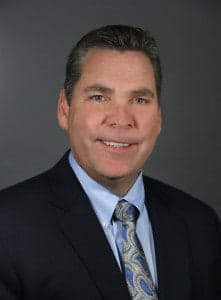By Pat Simasko, Principal of Simasko Law
We build estate plans so that our assets are distributed according to our wishes, not a probate court’s direction when it’s time. But even with a plan, things can get messy, especially if it hasn’t been updated recently (new regulations have “changed the game”) or isn’t comprehensive.
To avoid potentially devastating situations, your plan must be custom-tailored, up-to-date and explicit. Here’s what can happen when it’s not.
Put Strings on Inheritances
Grandparents leaving assets for their grandchildren is obviously common and well-intentioned, but it must be structured carefully. Giving someone who’s too young a financial windfall is a recipe for disaster.
More often than not, a kid who receives an inheritance will blow it – believe me, there are countless examples. For instance, I witnessed a 20-year-old “adult” blow his inheritance on his-and-her matching sports cars for him and his then girlfriend (they broke up soon thereafter).
Would you want that for your legacy?
If those assets were in a trust, the grandson’s need for speed could be curbed. Setting up a trust allows you to put stipulations on how, when and to whom your assets are distributed. Plus, it keeps the estate out of probate.
A trust is also helpful when young kids are involved because you can choose responsible adults to control the assets until the children are old enough. How old is enough? With a trust, you can decide.
Direct Your Legacy
Even when people think they’ve done the right thing with their estate plans, unforeseen circumstances can cause havoc.
Say an elderly widow plans to leave everything to her four adult kids. Her and her late husband set it up so that if one of their children pass away first, that child’s portion will go to his or her kids (the couple’s grandchildren).
But what happens if one of the adult children receiving an inheritance died a week after the elderly widow? Unless otherwise specified, those assets would go to that person’s spouse. And most of the time, it’s not specified otherwise.
Situations like this can ruffle feathers within families. When discussing this scenario with clients, most don’t want their legacy going to a child’s spouse. They fear that person will remarry and live off their money.
Using a trust can direct the assets, ensuring the right people benefit. The aforementioned widow could’ve guaranteed something for her grandchildren with a trust – and specifying that they have to be 25-years-old before they can spend it on their own would be wise.
Cover Every Marriage
Second marriages can be huge problems when it comes to estate planning.
Consider this – a divorced dad has three kids and marries another divorcée with three children of her own. Their collective estate plan says that when one spouse passes on, the other one unconditionally controls the estate.
On the surface, the surviving spouse getting the estate makes sense. But almost every time I’ve seen this scenario play out, the surviving spouse eventually cuts out the kids they didn’t bring to the marriage, especially if they’re adults. Thankfully, we can create estate plans to cover additional marriages.
In our example, say the dad brought an IRA, life insurance policy and cash savings to the marriage. He could have created a trust just for those assets, naming his new wife as the beneficiary and specifying that she gets the principle and income generated for living expenses.
Upon her passing away, whatever is left would go to his kids, or all six kids. That’s the beauty of trusts, you can tailor them to your needs.
Review, Revise, Repeat
No matter what’s in your estate plan, make sure to review the plan every few years with your advisor, also including an elder law specialist in the process. If it’s been a few years or more, it may be time for an update or to make some changes.
During the review, be sure to ask if a trust is right for you. They’re great tools that can honor your wishes and protect your estate. After all, you want your years of hard work to make an impact, and trusts are a great tool to ensure your legacy.
The Editorial Team at Healthcare Business Today is made up of skilled healthcare writers and experts, led by our managing editor, Daniel Casciato, who has over 25 years of experience in healthcare writing. Since 1998, we have produced compelling and informative content for numerous publications, establishing ourselves as a trusted resource for health and wellness information. We offer readers access to fresh health, medicine, science, and technology developments and the latest in patient news, emphasizing how these developments affect our lives.








